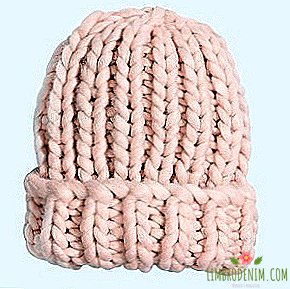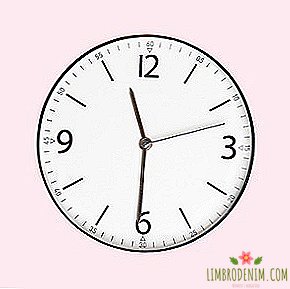Donate blood, kidney or bone marrow: Who and why becomes a donor
Despite the special promotions that often pass in different cities of Russia, in our country, the attitude towards donation is still ambiguous. Some become convinced donors for many years, others not only do not dare or feel fear, but also do not understand why their personal participation is needed. Even a simple blood donation is shrouded in myths, and many have never heard of other types of donations. We asked people who regularly share blood and its components, as well as those who decided to donate bone marrow and kidneys, about how it all began and what it means for everyone.
 I decided to become a donor, because I love helping people - it's great when someone gives their blood to save the lives of others. I thought about taking more plasma or other components, but now I drink pills that are incompatible with donation. When I came to donate blood for the first time, I was very afraid. Because of the excitement, I was not able to eat properly, so I fainted. It seemed to be very painful - and it really hurts, but the process itself is much less painful than donating blood or a vein for analysis.
I decided to become a donor, because I love helping people - it's great when someone gives their blood to save the lives of others. I thought about taking more plasma or other components, but now I drink pills that are incompatible with donation. When I came to donate blood for the first time, I was very afraid. Because of the excitement, I was not able to eat properly, so I fainted. It seemed to be very painful - and it really hurts, but the process itself is much less painful than donating blood or a vein for analysis.
The most difficult thing for me to donate is to psychologically accept that half a liter of blood is taken. It seems like a lot. But when you see how other people do it, you start thinking: “They didn’t die from this, and I didn’t die, so everything is in order."
Being a donor, I feel that I am helping someone, and I see other caring people who are ready to help. It is important for me to know that there are people who care. I hope someday I will donate blood for typing and I can become a bone marrow donor; in my view, donating my bone marrow to another person is such a “crown” of donation.
 The idea of becoming a donor, probably, was always in my head. Back in 2010, I saw the mark "donor" in the identity card of a familiar American woman and was very impressed. The decision to give blood came without much thought. The first time I went with a friend who had already done this, she was refused that day for some reason, but they missed me. I didn’t understand much about the donation, so I donated what was said - 450 milliliters of blood.
The idea of becoming a donor, probably, was always in my head. Back in 2010, I saw the mark "donor" in the identity card of a familiar American woman and was very impressed. The decision to give blood came without much thought. The first time I went with a friend who had already done this, she was refused that day for some reason, but they missed me. I didn’t understand much about the donation, so I donated what was said - 450 milliliters of blood.
Before the procedure I had concerns, I was afraid that I would lose consciousness or I would feel dizzy, but there were no undesirable effects. Nevertheless, I am not a very successful donor: there have been more withdrawals in all this time than tolerances. The last time, although the necessary indicators were in order, the doctor still advised me to refuse to donate blood. For six months after the previous donation, I never managed to replenish the hemoglobin level, although he usually returned to normal. It happens that healthy people cannot recover for a long time, despite good nutrition, and vice versa - a person does not eat, for example, meat, and hemoglobin recovers quickly. I have been regularly checking hemoglobin levels for a year now, but nothing changes; It seems to me that the failure was caused not by donation, but by some other processes in the body. This factor may be a reason for failure, and more often women face it.
When I began to donate blood, I did not have to change my lifestyle - I did not smoke or drink alcohol anyway. It is inconvenient only that I have pollinosis and from the year of donation only part of the time is available to me. And given that doctors do not recommend donation for five days after menstruation, sometimes it is simply impossible to find time to go and donate blood. I believe that donation is an easy way to help people, accessible to almost everyone. I once met a woman who was never allowed to become a donor - but she continued to come to the blood donation center, no longer alone, but with a potential donor. Perhaps I will consider this option if I can not return to the donation itself.
 I donate blood not too long ago, but regularly, I already have eleven donations. I have a rare blood group (the fourth with a negative Rh factor), so the thought of donation has long matured, and a colleague pushed him. For the first time, as in the following, everything went quite easily. A little frightened by the unknown, but I was not alone, and the decision was balanced. In addition, usually at the blood transfusion station, they simply do not accept primary donors, but when I called, I was told: “Come at any time,” it was impossible not to come. Recently, after the tenth donation, I was offered to donate a plasma. I want to read about it; I live in Tver, and we have problems with informational support. Even not everyone knows their blood type.
I donate blood not too long ago, but regularly, I already have eleven donations. I have a rare blood group (the fourth with a negative Rh factor), so the thought of donation has long matured, and a colleague pushed him. For the first time, as in the following, everything went quite easily. A little frightened by the unknown, but I was not alone, and the decision was balanced. In addition, usually at the blood transfusion station, they simply do not accept primary donors, but when I called, I was told: “Come at any time,” it was impossible not to come. Recently, after the tenth donation, I was offered to donate a plasma. I want to read about it; I live in Tver, and we have problems with informational support. Even not everyone knows their blood type.
The only thing I could not prepare for (but I kept this nuance in my head) was the probability of losing consciousness in the process. But the fears were not justified, everything went fine; In our center are working positive people who always smile and distract from bad thoughts. Once, I still lost consciousness after donating blood, only it was my fault — I ignored important rules that time: there was a serious lack of sleep and a meager, hastily cooked breakfast, which led to this result. Several specialists of the center took me over, and after a couple of minutes I came to my senses.
I would like to say that the donation has changed my lifestyle and thoughts, but it is not. I live as before, however, I pay attention to my diet and sleep for three or four days before donation. I have no bad habits, so I don’t have to fight them. Most of all I am glad that I help people, at least in such a simple way. It does not take much time and, I think, everybody can. Sometimes I look at the young guys who come to donate blood, and I think: I wonder, what percentage of them will do it all the time? Are they aware of what is happening, or just want to try something new? I deliberately plan to do this all my life. I'd like to donate blood to become fashionable and popular. We need to think and take care of each other more often.
 I always really wanted to donate blood, but I never got around to it. Then a close friend became a donor, I learned that there is a blood donation center in my area, I went there for an examination. It turned out that I am the carrier of kell antigen (this molecule is found in 10% of people on the planet) and because of this I can not donate whole blood - only its components and plasma. I was upset when I was informed about this, but since the biochemical indicators were perfect, I was immediately offered to donate plasma and explained that this is a very important process, even more so than blood donation. I didn’t have any fears, I never thought about it at all, I thought only about ill people I needed to help.
I always really wanted to donate blood, but I never got around to it. Then a close friend became a donor, I learned that there is a blood donation center in my area, I went there for an examination. It turned out that I am the carrier of kell antigen (this molecule is found in 10% of people on the planet) and because of this I can not donate whole blood - only its components and plasma. I was upset when I was informed about this, but since the biochemical indicators were perfect, I was immediately offered to donate plasma and explained that this is a very important process, even more so than blood donation. I didn’t have any fears, I never thought about it at all, I thought only about ill people I needed to help.
A year before the active donation, I switched to proper nutrition because of my weight loss system, so I was already eating healthy food. And yet it was difficult to get used to the diet, which has to be kept two or three days before the plasma is delivered. And of course, this week you need to eliminate alcohol.
Recently, my mother had a surgery at the clinic. She told how a woman was brought to their ward who was very sick and could do almost nothing. She was prescribed plasma transfusions - and after two procedures she already walked, communicated with others, and enjoyed life. I think that someday my plasma will also help people.
 I am a whole blood donor since 2010, and while studying at the institute, I helped organize donor days. I learned about the bone marrow donation by chance, through the AdVita VKontakte group. The topic of oncological diseases is close to me, there is some old horror before them. Therefore, I decided to join the bone marrow donor register and was tested for typing. The first time I was waiting for a call, I really wanted someone to come up, but coincidences happen very rarely. And yet the recipient was found.
I am a whole blood donor since 2010, and while studying at the institute, I helped organize donor days. I learned about the bone marrow donation by chance, through the AdVita VKontakte group. The topic of oncological diseases is close to me, there is some old horror before them. Therefore, I decided to join the bone marrow donor register and was tested for typing. The first time I was waiting for a call, I really wanted someone to come up, but coincidences happen very rarely. And yet the recipient was found.
I had no serious concerns. There was a small, quite natural fear of a new medical intervention. But, as it turned out, there was nothing to fear. I was taken to a consultation with a transfusiologist, where I had to choose a method of taking the bone marrow - during the operation or where the bone marrow cells are stimulated with a special medicine, causing them to go into the blood, and then they just take blood. Usually the donor himself makes the decision, and I wanted to choose an operation under general anesthesia so that it was quick and not scary (it was scary to lie for several hours with the blood flowing from me and flowing back through the tubes). But in my case, it was necessary to take into account the peculiarities of the recipient, and as a result, experts recommended the second option. They told me more about the procedure, took me to an office where I was able to communicate with another donor, and my fears disappeared.
After donation, my lifestyle remained the same. I could help and should have done it. It is very exciting and unusual to realize that with your help a person has recovered. For my patient, the period of illness was a difficult ordeal, and I did not even have to expend much energy. As for the physical sensations of donation, I seemed to become more healthy than before. And sometimes it seems that I can "feel" my patient - although, probably, I inspired it to myself.
 I used to live in Irkutsk, and while the donation did not concern me at all, I did not know anything about him. Once my close friend got very sick, and I began to look for information on how to help him. It turned out that it is necessary to pass the bone marrow - but first you need to undergo a typing analysis, and if the genes match, then he has a chance to recover. The likelihood that it would suit my bone marrow was very low. However, I made a decision: if I cannot help him, my bone marrow may be useful to someone else. In August 2014, I arrived in St. Petersburg to get tested for typing, I myself found a clinic, phoned there and signed up. While I was being examined, a donor was picked up for my friend - and the friend was still alive. My bone marrow was not useful to him, but it did not affect my decision to become a donor.
I used to live in Irkutsk, and while the donation did not concern me at all, I did not know anything about him. Once my close friend got very sick, and I began to look for information on how to help him. It turned out that it is necessary to pass the bone marrow - but first you need to undergo a typing analysis, and if the genes match, then he has a chance to recover. The likelihood that it would suit my bone marrow was very low. However, I made a decision: if I cannot help him, my bone marrow may be useful to someone else. In August 2014, I arrived in St. Petersburg to get tested for typing, I myself found a clinic, phoned there and signed up. While I was being examined, a donor was picked up for my friend - and the friend was still alive. My bone marrow was not useful to him, but it did not affect my decision to become a donor.
Before heading to typing, I went to the RusFund website and carefully read who suited them. The position is very simple: they have no right to do the procedure if it harms the donor. That is, if something threatened my health, I would not have been allowed to surrender. After some time there was a coincidence, and I was invited to the procedure for the delivery of bone marrow. I was not afraid of unpleasant sensations, considering what excellent pain killers are now. And the fact that people who need a bone marrow transplant feel so unbearable pain that my discomfort from the injection did not even stand next to me.
I could not help as a blood donor: I weigh less than fifty kilograms. With bone marrow donation there are no such restrictions. A week before the procedure, they began to inject me with a drug that stimulates the production of stem cells - so that later they can take their “extra batch”. This is an advantage over blood donation: if after blood donation it remains less than needed, and recovery is required, then when donating the bone marrow, it is taken as if it were “superfluous”, something that was previously stimulated. It only affected me in a positive way. For six months after the operation, I woke up vigorously, the energy used a key. I began to get up without an alarm clock, went to work by eight in the morning, went to the gym after work, came and did household chores, went to bed around midnight and I still did not want to sleep.
Now the woman with whom I shared the bone marrow is alive, and most recently we met. She had one form of acute leukemia. I was really looking forward to dating. My bone marrow was taken in October, her operation was in December, but when I didn’t know specifically. Bone marrow donors sign an anonymity agreement, and you can only be contacted two years after the operation. Once from Rusfund they wrote to me that the recipient wants to meet - and I, of course, gave a phone number. We met with pleasure. It was interesting to know how she feels, and it is just important to realize that the person survived thanks to my bone marrow. But I do not think that I did something outstanding. This should be the human norm.
 Today I am a career donor (such a donor donates blood several times a year at the same delivery point. - Ed.), I already have nineteen donations. The first time I donated blood at the age of eighteen, in the days of the donor it was possible to do it right at the company where I was working at that time. I also donated blood for children at the oncological center in Moscow. My mother also donated, and I always wanted to become an honorary donor - such is an unusual childhood dream. I always remembered that I had the first blood group with a negative Rh factor. And getting a badge in the form of a red droplet and wearing it on your chest seemed like something very cool.
Today I am a career donor (such a donor donates blood several times a year at the same delivery point. - Ed.), I already have nineteen donations. The first time I donated blood at the age of eighteen, in the days of the donor it was possible to do it right at the company where I was working at that time. I also donated blood for children at the oncological center in Moscow. My mother also donated, and I always wanted to become an honorary donor - such is an unusual childhood dream. I always remembered that I had the first blood group with a negative Rh factor. And getting a badge in the form of a red droplet and wearing it on your chest seemed like something very cool.
I am not afraid of either doctors or the type of blood, so I donate easily - it was the first time. Then I am always overwhelmed with pride because I can somehow help others. It turns out four or six times a year to donate blood, they simply won't allow it anymore, sixty days must pass between donations. Several times I donated platelets, this procedure is also easily tolerated, and the gap between donations of two weeks is sufficient. I was invited for a specific person with leukemia, we have the same blood type.
I completely changed my lifestyle when in 2013 I decided to fulfill my childhood dream and become an honorary donor: I quit smoking, switched to lactose vegetarianism. For five years, this regime began to feel much better. Now connected more and sport. Donation is also beneficial for the donor himself, and after blood donation I always feel a huge surge of strength. I want to move mountains, but I have to go home and rest. I am proud of what I do. At any opportunity I talk about donation and recommend doing it. Very worried if I miss the next donation. While there will be health and strength, I will definitely donate blood.
 I live in the USA, in the state of Florida. Last year, it turned out that my sister’s close friend, a man I have known for years, needs a kidney transplant. The circumstances were favorable, and I decided that I could share with her my (in Russia, a kidney transplant from a live donor is allowed only between close relatives. - Ed.). I was not scared, I felt strong and healthy. All surveys have shown that I am a good candidate for donors; blood group and Rh factor also coincided. I was happy that I could give a part of my body and give a chance for a longer and more healthy life.
I live in the USA, in the state of Florida. Last year, it turned out that my sister’s close friend, a man I have known for years, needs a kidney transplant. The circumstances were favorable, and I decided that I could share with her my (in Russia, a kidney transplant from a live donor is allowed only between close relatives. - Ed.). I was not scared, I felt strong and healthy. All surveys have shown that I am a good candidate for donors; blood group and Rh factor also coincided. I was happy that I could give a part of my body and give a chance for a longer and more healthy life.
Kidney removal is a complete, albeit laparoscopic, operation. (operation through an incision in the abdominal wall measuring 1-1.5 cm. - Ed.). I have a fairly flexible job, so I allowed myself to recover for almost a month. The lifestyle after the surgery has changed only slightly: now I need to drink more water, which the remaining kidney needs. I also can not take ibuprofen, instead of it - only paracetamol. But this is nothing.
I have been involved in blood donation for many years and donated it many times. It is always an incredible feeling - to be healthy enough to supply the blood of others, spending only a certain amount of time and making a little effort. To share a kidney is much more serious, and I am very glad that I did it. A friend with a new kidney again lives a normal life, she is healthy and strong, despite the fact that she should drink drugs that prevent graft rejection. However, she no longer needs to go on dialysis, and in the future she expects a normal life.
Donation of a kidney is not for everyone: you need to be healthy, have free time to recover, and also surround yourself with people who can help after the operation. But I think that more people should think about whether they can be among the lucky ones who can help others - friends or strangers. With one kidney, we can live a normal and long life, so I agree with the call #ShareTheSpare, that is, “share a spare [kidney]” - this is a hashtag related to kidney donation.
Cover: Pinmart




